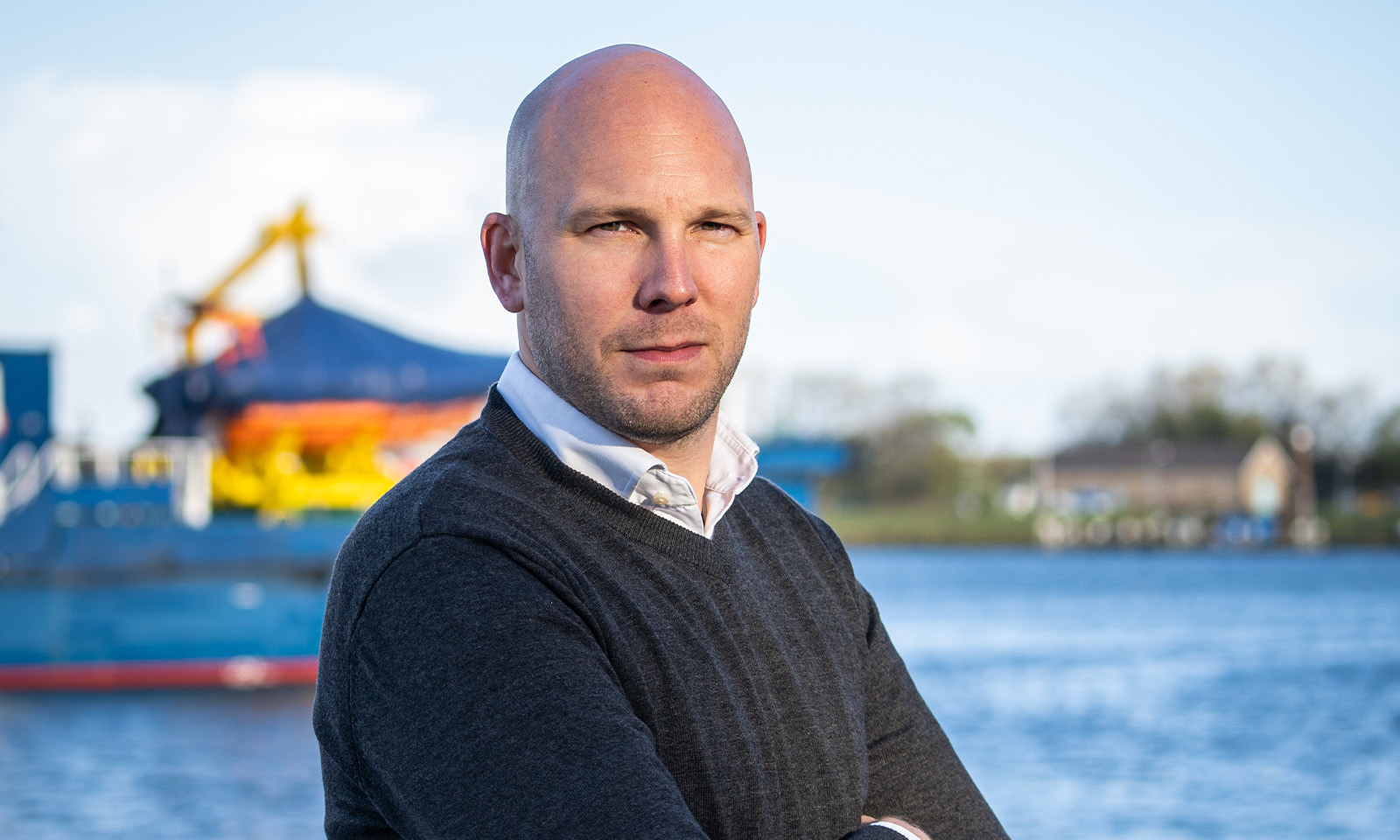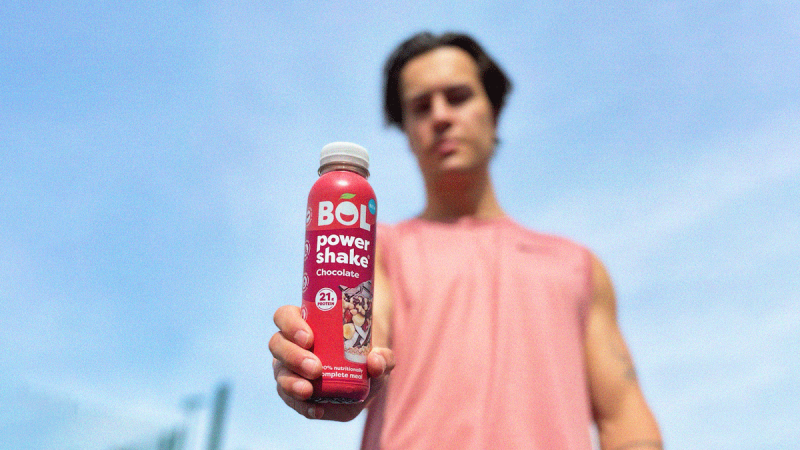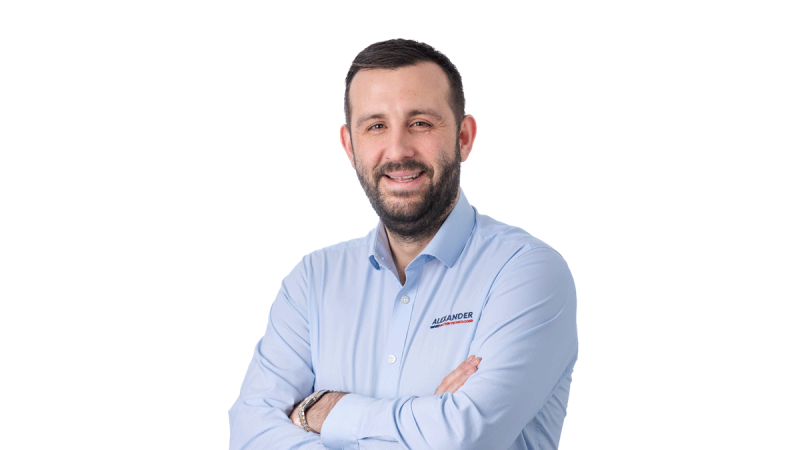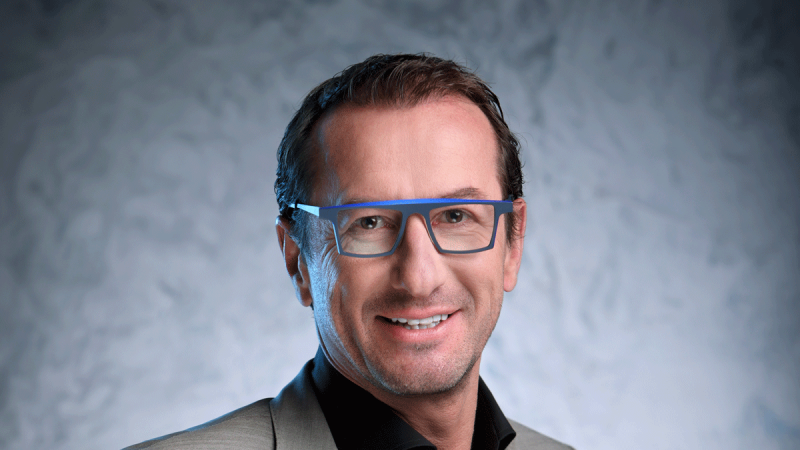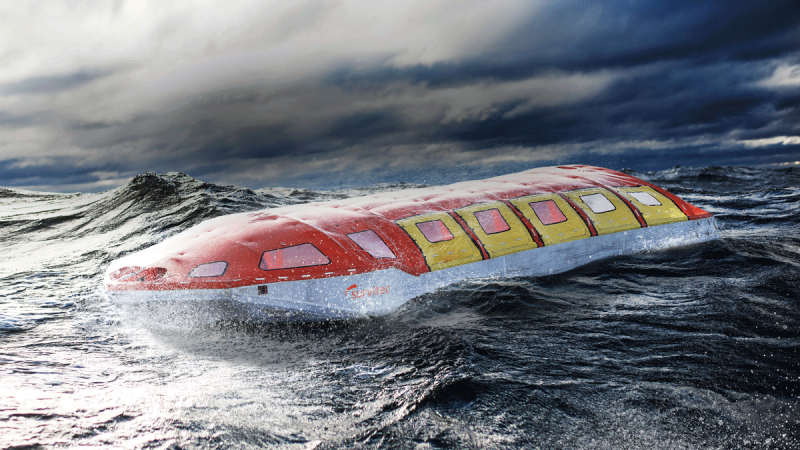Damen Maaskant is a mid-sized yard with more than 75 years of experience in ship repair. The story of Damen Maaskant started in 1948 when Piet Maaskant and his sons opened a winch-making shop that later developed into a repair yard to serve the mussel and shrimp fleets working out of Bruinisse on the Dutch North Sea coast.
In 1984, while in the hands of the second generation, the Maaskant shipyard was taken over by Damen, another Dutch family-owned shipyard, becoming one of the first Damen acquisitions at the very start of its expansion. Today, Maaskant Shipyard is still part of the Damen family which has developed into a global defence, shipbuilding, and engineering conglomerate with 35 shipyards and operations in 120 countries around the world.
CEO Eric Moerkerk says that from the start, the business has striven to exceed its client’s expectations, and this philosophy has guided the company until today. “The family spirit is still felt in the company as both Damen and Maaskant remain family owned. Until 3 years ago, two of the founder’s grandchildren were still working at our shipyard, and some of our employees, who have been with us for 40 and even 50 years, still remember both of the original companies’ founders.”
Modern facility
Damen Maaskant is situated at an easily accessible location from any North Sea or English Channel fishing ground. Services and repairs can be performed at the yard, but yard professionals will also provide excellent repairs and upgrades at other locations.
Throughout the years, the yard has built up sustainable customer relationships through its know-how and belief in providing personal service. The modern facilities, ISO 9001 certified, perform the highest quality construction, maintenance, and conversion of clients’ vessels. The current ratio of new builds and refits is about 50:50, says Mr Moerkerk.
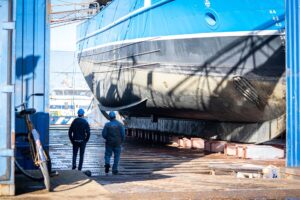 The shipyard’s new-build capability is wide and includes beam trawlers, twin riggers, shrimp trawlers, mussel dredgers and purse seiners. In addition, Maaskant is also involved in the design and construction of seagoing workboats such as buoy-laying and offshore vessels, governmental agency vessels, and small offshore vessels.
The shipyard’s new-build capability is wide and includes beam trawlers, twin riggers, shrimp trawlers, mussel dredgers and purse seiners. In addition, Maaskant is also involved in the design and construction of seagoing workboats such as buoy-laying and offshore vessels, governmental agency vessels, and small offshore vessels.
Refits include lengthening, re-engining, refits of wheelhouses or cabins, and fish-catching and processing installations.
In addition, the company has also developed a new niche market – Mr Moerkerk explains that two years ago, the company decided to enter a new segment, yacht refit and conversions.
“All types of commercial vessels can be converted into luxurious explorer yachts. To expand our scope of activities we have invested in diversification into this completely new market for us, one with different demands but one where we can apply our skills and capability.”
Maaskant has three floating drydocks, a repair berth and well-equipped machine shops. Additionally, Maaskant serves as an official Caterpillar service point, from which the company offers prompt 24/7 after-sales services for engineering, overhauls, repair, and maintenance jobs for all types of Caterpillar propulsion and generator motors.
Handling the challenge
He notes that there are two trends that affect the industry. The first is the energy transition and pressures to reduce greenhouse gases. “Especially in our range of products and their operational profiles, implementing the desired changes, such as a move to alternative fuels, is a challenge that will not be met soon but one that certainly needs to be addressed.”
The second trend affecting the maritime sector, just as in every other industry, is high inflation. “Compared to pre-Covid, prices within the supply chain have increased by at least 15%, which is quite a big difference that changes the business model perspective of our clients – their projects are capex investment for them and a 15% increase in costs has a major impact.”
Mr Moerkerk reflects that being a relatively small family-owned company is a distinctive advantage, enabling a high degree of flexibility as well as fostering staff and customer loyalty. But there are also other differentiators.
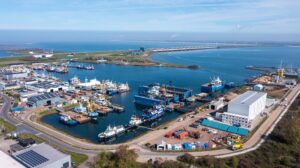 “Our craftsmanship is second to none and our customers appreciate that. We are also very lean and efficient. Although we are not the cheapest in terms of hourly rates compared to Eastern Europe for example, our customers can see the value of what we can provide and are willing to pay for the reassurance of top quality and reliability.”
“Our craftsmanship is second to none and our customers appreciate that. We are also very lean and efficient. Although we are not the cheapest in terms of hourly rates compared to Eastern Europe for example, our customers can see the value of what we can provide and are willing to pay for the reassurance of top quality and reliability.”
The shipyard currently employs 110 full-time employees and some 20 or 30 on flexible contracts. Attracting and retaining the required skills, particularly those needed on the shop floor, is not easy, Mr Moerkerk admits. To this end, the company established its own training centre three years ago for young people coming straight from secondary school at the age of 16. “Having its own training school is another unique feature of Damen Maaskant and a key one for being successful in the future.”
Solid foundation
The yard’s outstanding reputation is also, to a certain extent, the result of solid, long-lasting relationships with suppliers. Mr Moerkerk affirms that the focus on local is strong – the shipyard has created a whole eco-system locally, a small community of businesses and subcontractors, working for the benefit of all involved.
“A local supply chain means high reliability, but it also means that we don’t need to change suppliers often. The subcontracting community has been working together for quite some time, meaning less supervision and less supply management.”
This, again, creates a sound foundation for further development. Going forward, the company will continue to focus on two major topics, says Mr Moerkerk. “The first is expansion – we always keep an eye open for potential acquisitions of companies worldwide within our product-market combination. The other task is to be more sustainable. We cannot yet be zero-
emission, but we will strive as much as we can for what is possible – we started with solar panels and waste reduction, and we will be looking at building a vessel with the circular economy in mind.”
At the same time, the shipyard will aim to become a market leader in the development and production of innovative and sustainable vessels for the cultivation, harvesting and catching of fish from the sea. “In this way, we intend to secure the future of our industry for the generations to come.”
